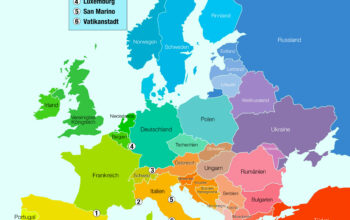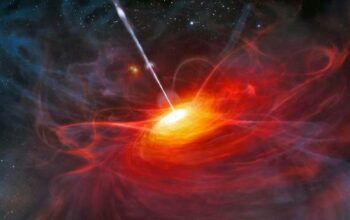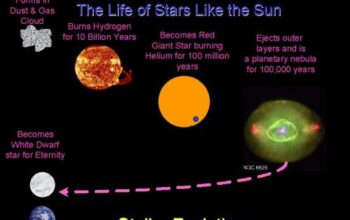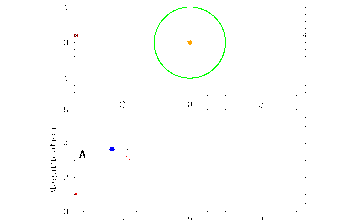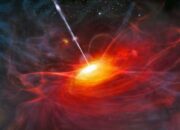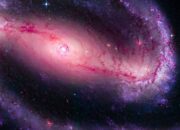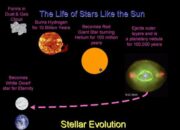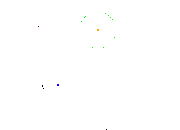In the quest to understand life’s complexities, the convergence of physics and philosophy emerges as a fertile ground for exploration. This interdisciplinary dialogue invites us to reconsider fundamental questions about existence, the cosmos, and the underlying structures of reality. The phrase “life, the universe, and everything” suggests an intricate tapestry woven from the threads of scientific inquiry and philosophical contemplation. The profound implications of this intersection resonate not only in academic circles but also stir the imaginative faculties of the general populace.
The genesis of this discourse can be traced back to the ancient Greeks, where early philosophers like Aristotle pondered the nature of existence and causality. These inquiries laid the groundwork for what would eventually evolve into the scientific method. Over the centuries, physics emerged as a rigorous discipline, committed to uncovering the laws governing the physical world. Meanwhile, philosophy continued to grapple with questions of meaning, knowledge, and ethics, often considering the implications of scientific discoveries.
Physics, at its core, seeks to elucidate the fundamental forces and particles that compose our universe. From the intricacies of quantum mechanics to the grandeur of cosmology, it endeavors to decode the enigmatic behaviors of matter and energy. However, the pursuit of understanding is not merely a mechanical endeavor. The philosophical ramifications of these scientific revelations are profound, challenging our notions of reality and our place within it.
The theory of relativity, proposed by Albert Einstein, fundamentally altered our perception of time and space. This paradigm shift invites philosophical reckoning: how does the relativity of simultaneity influence our understanding of causality? If events that are simultaneous in one frame of reference are not necessarily simultaneous in another, what does this imply about the nature of time itself? Such inquiries provoke further contemplation about the linear narrative of human experience and the subjective nature of reality.
Similarly, the advent of quantum mechanics introduced a level of unpredictability and indeterminacy that seemed to undermine classical deterministic philosophies. At the quantum level, particles exist in states of probability rather than certainties, challenging our intuitive grasp of causation and agency. The implications extend beyond the realm of physics; they permeate discussions of free will and moral responsibility, compelling philosophers to reconsider the foundations of human decision-making. These intersections illuminate the intricacies of existence, revealing a universe that is as much about possibility as it is about actuality.
Moreover, the philosophical ramifications of dark matter and dark energy epitomize the ongoing dialogue between physics and philosophy. These elusive components constitute a significant portion of the universe, yet their properties remain largely mysterious. The very acknowledgment of the unknown invites philosophical speculation: what can be said about a reality filled with entities that resist empirical observation? This inquiry transcends empirical investigation, pushing us to confront the limitations of human understanding and the existential implications of what lies beyond the observable universe.
In parallel, the exploration of life itself through a scientific lens offers a compelling narrative that intertwines with philosophical themes. The biochemical basis of life, elucidated through genetics and evolutionary biology, necessitates a reexamination of purpose in the biological context. Are we merely products of evolutionary chance, or do we possess an inherent meaning that transcends survival? The synthesis of scientific understanding and philosophical inquiry propels us toward a more profound comprehension of our existence.
As we navigate the cosmic landscape, the search for extraterrestrial life raises paramount questions concerning the uniqueness of human experience. If life exists beyond our planet, what does it imply about the universality of consciousness? The prospect of intelligent civilizations prompts us to confront philosophical dilemmas regarding communication, ethics, and the essence of intelligence itself. Such considerations serve to expand our mental horizons, encouraging us to envision alternative scenarios of existence that challenge anthropocentric paradigms.
The burgeoning field of astrobiology exemplifies how the synthesis of physics, chemistry, and philosophy could yield insights into the nature of life across the cosmos. By scrutinizing extremophiles—organisms thriving in hostile environments—scientists are reshaping our understanding of life’s potential. This intersection not only piques curiosity but also enriches philosophical discourse regarding the criteria for life and the ethical treatments of other life forms that may be encountered.
Furthermore, the philosophical inquiries concerning artificial intelligence (AI) evoke pertinent ethical considerations. As machines become increasingly capable of tasks historically relegated to humans, questions of agency, morality, and the nature of consciousness arise. What does it signify if an AI can learn, adapt, or even exhibit behavior previously considered uniquely human? Such quandaries challenge the delineation between the natural and the artificial, prompting a reassessment of our understanding of intelligence, autonomy, and the ethical frameworks that govern our interactions with emerging technologies.
In conclusion, the union between physics and philosophy serves as a lens through which we can examine the existential questions of life, the universe, and everything within it. This intricate relationship fosters not only a deeper understanding of the cosmos but also enriches our contemplation of our place within it. By encouraging an enduring curiosity and a relentless pursuit of knowledge, the dialogue between these two disciplines promises to illuminate pathways toward understanding that exceed the boundaries of empirical inquiry. As we continue to explore this nexus, we may find that the answers to our most profound questions lie not in isolation but in the synthesis of thought, where science and philosophy coalesce to expand the human narrative.

